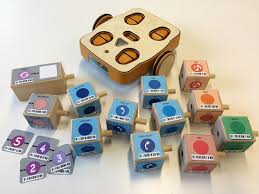To achieve full and equitable access and participation in science for women and girls, and also to achieve gender equality and the empowerment of women and girls, the General Assembly of the The United Nations in 2016 decided to proclaim February 11 as the < strong>International Day of Women and Girls in Science.
Recognizing the role of women and girls in science, not only as beneficiaries, but also as agents of change is vitally important, as science and gender equality are vital to achieving the Goals of Sustainable Development (ODS) .
In recent decades, the international community has made a great effort to inspire and promote the participation of women and girls in science and to make visible the often anonymous work of thousands of women in all scientific areas.
From THEAD System we want to highlight the work and vision of MARINA BERS on learning programming languages in the childhood education as it has inspired thousands of researchers and educators around the world, influencing their educational philosophy.
He co-developed the programming language ScratchJr in collaboration with Mitch Resnick of MIT Media Lab and Paula Bonta and is the creator of the robot KIBO, a robotic platform for 4-7 year olds (no screens or keyboards) that can be programmed with wooden blocks. With KIBO, young builders learn programming and engineering while integrating arts and crafts. His robot KIBO was the winner of the Best of Show award from Tech & Learning at ISTE19.
He has received important research awards and distinctions such as the 2005 Presidential Early Career Award for Scientists and Engineers (PECASE), the highest honor given by the US government, and has collaborated on countless educational technology projects in the USA , Colombia, Spain, Costa Rica, Singapore and Thailand.
His work is oriented towards the design and study of innovative learning technologies to promote the integral development of children.
"We teach coding as if we were teaching how to learn a new language and express ourselves within that language. Languages have the power to change the world and what we need are people who can change the world, not just people who can get a new job in the automated economy."
Marina Umaschi Bers, PhD - Tufts University
From the THEAD System, we strongly believe in the work and effort of people like Marina Bers to promote responsible use of technology and the development of people in their entirety.
Equality between men and women is a global priority, and supporting young women, their education and their full capacity to make their ideas heard are the drivers of development and peace
You can click on each link to learn more about the our trainings, programs for educational centers and projects performed.





